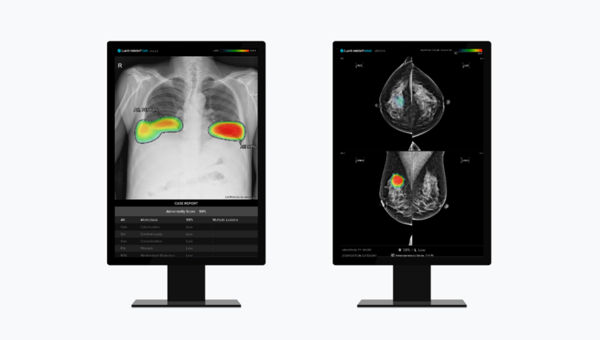Lunit, a medical artificial intelligence (AI) company, said Monday that it has signed contracts to provide AI image analysis solutions for cancer diagnosis to Chung Shan Medical University in Taiwan and a large hospital in Singapore.
The company said that with these contracts, Lunit plans to strengthen its presence further in the Greater China region and ASEAN markets.

Lunit will provide Lunit INSIGHT CXR, an AI image analysis solution for chest X-rays, to a lung cancer diagnosis research project by a research team at the Chung Shan Medical University in Taiwan, located in Kaohsiung, Taiwan's largest port city. Chung Shan Medical University is a major research university in Taiwan with remarkable research achievements in science and engineering. It is recognized for its academic excellence in Asia and the world.
Currently, Taiwan's national lung cancer screening program is limited to high-risk groups, such as smokers and those with a family history of the disease. It uses low-dose computed tomography (LDCT). The study will test whether AI-enhanced chest X-rays can expand screening coverage and improve cost-effectiveness and accuracy compared to the existing method. If successful, the study is expected to impact the local medical community and society positively.
In addition, Lunit signed a contract with Gleneagles, a large hospital in Singapore, to supply Lunit INSIGHT MMG, an AI image analysis solution for mammography. Gleneagles Hospital is part of Parkway Pantai, the largest hospital group in Southeast Asia. Parkway Group operates over 20 medium to large hospitals in Malaysia, Hong Kong, India, and China.
The contract was signed as part of the ICT-based healthcare system overseas expansion support program of the Korea Health Industry Development Institute (KHIDI) under the Ministry of Health and Welfare. Lunit plans to expand to other hospitals within Parkway Group through this agreement. Given Parkway Group's network and reach, it is expected to promote the utilization and development of medical AI technology in Greater China and ASEAN markets.
"In Greater China and ASEAN countries, the demand for advanced healthcare services, diagnostic accuracy, and highly efficient healthcare solutions is steadily increasing," Lunit CEO Seo Beom-seok said. "We expect this supply agreement with Taiwan and Singapore to be an important step in our business expansion in the region."
Related articles
- Korean medical device makers shine at Europe's largest radiology conference
- Study on ‘Lunit SCOPE IO’ published in official SITC journal
- Lunit's shares rebounding after record-breaking 2023 sales announcement
- Lunit secures 1st US sale of FDA-approved breast cancer detection solution
- Lunit's AI-based lung nodule detection outperforms competitors
- Lunit gets initial approval for Volpara Health Technologies acquisition in New Zealand
- Lunit expands presence in Europe with 2 new supply agreements
- Lunit to present 7 studies on Lunit Scope at AACR 2024
- Lunit AI software proves early breast cancer detection, reduced workload for radiologists
- Immunotherapy offers encouraging treatment outcomes for small cell lung cancer patients

